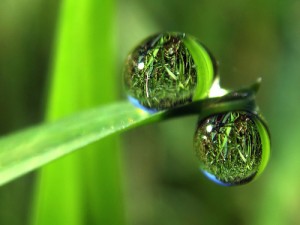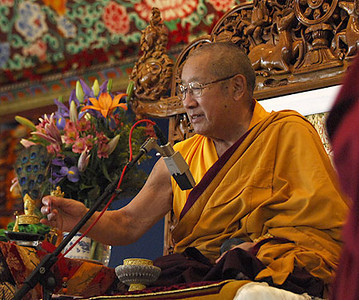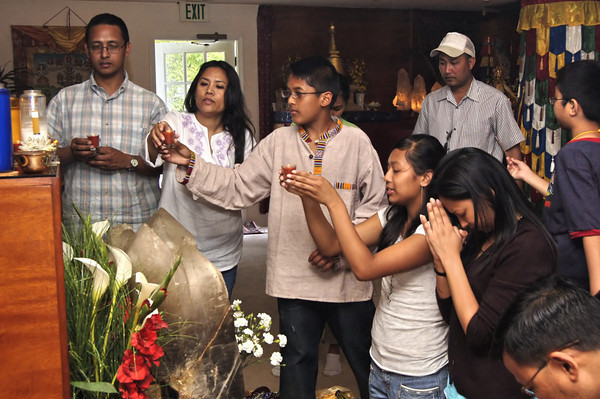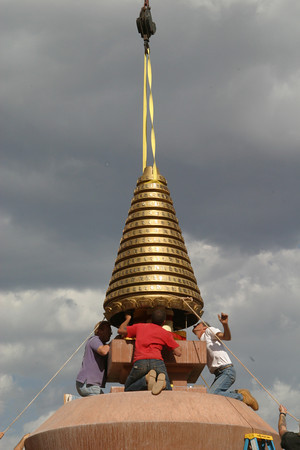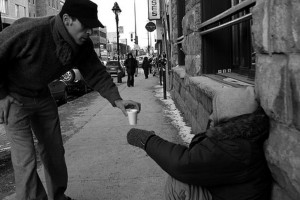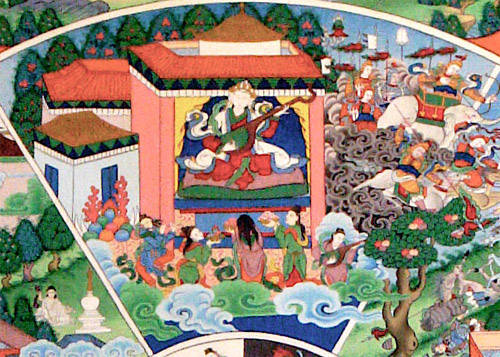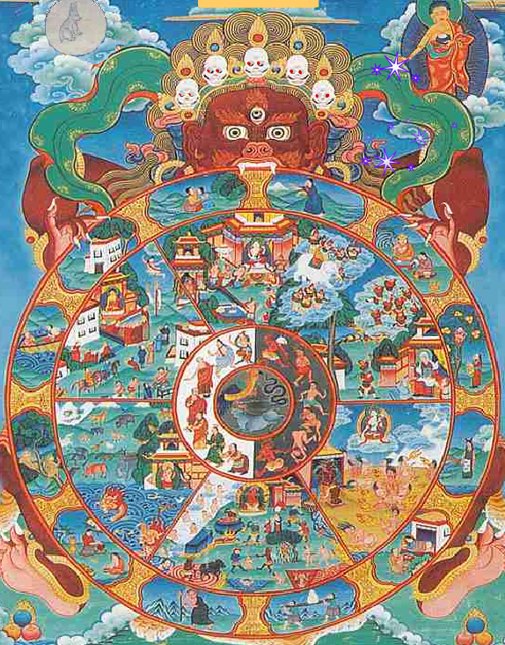The following is an excerpt from a teaching by Jetsunma Ahkon Lhamo called “The Foundation of Bodhicitta”
In closing, I wish to say this one thing. I talked to someone recently who was schooled in a meditation that could create a feeling that was kind of blissy. This kind of meditation had bliss-like qualities. It would make you feel that you were kind of drunk, a kind of high feeling, a bliss-like quality. When I asked where the teaching came from, she said she got it from her teacher who had an experience of revelation and developed this teaching from that experience. I asked what the source of revelation was. She said they don’t think of it as a source, but this person had a revelation. This person had developed a technique with breathing and things like that. When I heard what the technique was, I was amazed. I remember thinking that you can horse yourself into a hyper-excited emotional state that is very much like a blissy kind of an experience. You can jerk yourself around psychically, using breath, using visualization, using certain kinds of thoughts and physical and non-physical techniques in which you can feel a certain kind of bliss. But I don’t know why a person would want to waste their time with that. I don’t know why a person would engage in such activity. It seems to me that all they are doing is exchanging one kind of phenomena for another.
The feeling that you have right now is just that. It is a feeling. It is like dew on the grass. When you examine it and even understand that the self that produced the feeling is empty of self-nature and is only the primordial wisdom state, that feeling that you have right now will vaporize. And who is producing this bliss that you can horse yourself into? This bliss, when examined, is produced by that same one. Not understanding the emptiness of self nature, not understanding and awakening to the primordial wisdom state through purifying hatred, greed and ignorance, not understanding this, you can jerk yourself around and experience bliss. And you can think happy thoughts for an hour and you will feel pretty good about yourself; but who is producing that thought the same way and it will vaporize the same way. Why exchange one kind of phenomena for another?
In the Vajrayana view, it is very plain and actually best put in a very stark verbiage. In the Vajrayana view, it is very clear: Chocolate and shit are the same. They are both brown and they are both phenomena. Now, of course, it is the you that would rather it be chocolate, but the you is not inherently real as you understand it. It is empty of self-nature. And it is only in your understanding of yourself, in the way that you do understand, and your clinging to that self, that you crave chocolate as you do and you are repelled by shit.
But phenomena is phenomena and you must understand that in order to practice the ultimate bodhicitta, you must practice the supreme path that does not create just another kind of phenomena. It doesn’t just create another kind of high, but in fact absolutely pacifies, once and for all, all of the building blocks of cyclic existence, all of the grasping, hatred, greed and ignorance, pride, jealousy, all of these things, that will produce this terrible suffering. These must be pacified once and for all. That is the ultimate act of love. There is a technology by which this can be accomplished. You cannot think it away because always who is doing the thinking will be you.
So the game is then to become awake—to awaken to the primordial wisdom nature, to awaken to that Buddha nature, the ultimate kindness.
That is our teaching today. I hope that it is useful. Please make use of the teaching.
